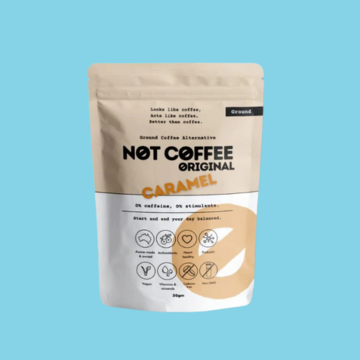Written By  Go Vita
Go Vita
blog

When it comes to staying energised and reducing stress, there’s no denying B vitamins play a vital role!
What about Activated B Vitamins?
The Difference Between B Vitamins
When it comes to staying energised and reducing stress, there’s no denying B vitamins play a vital role!
A deficiency in B vitamins can adversely effect your overall health and wellbeing, as well as your exercise performance and post-exercise recovery rates, because the B-group are needed to convert protein and carbohydrates into energy and also to support healthy energy production in the cellular mitochondria (the cells’ energy powerhouse).
A well-balanced and nutritious diet is your first, and most important, building block to supporting good health and preventing disease. So to help you on your way, check out the table below to see how each of the different B vitamins interact with the body and the key foods they can be found in.
|
Nutrient
|
Main food sources
|
Key effects
|
| Vitamin B1 (thiamine)
|
Yeast extract, fortified cereals, nuts, soya beans, wholegrains, spinach, peas, egg yolk |
|
| Vitamin B2 (riboflavin)
|
Liver, milk, eggs, okra, yeast extract, kidney, cheese, beef, yoghurt, fish, chilli |
|
| Vitamin B3 (niacin)
|
Liver, mushrooms, beef, pork, fish, chicken, fortified cereals, yeast extract, wheatgerm, corn, peanuts |
|
| Vitamin B5 (pantothenic acid)
|
Liver, kidneys, sweet potatoes, lentils, broad beans, peanuts, tahini, nuts, avocado, dried figs |
|
| Vitamin B6 (pyridoxine)
|
Beef, turkey, liver, fish, chicken, eggs, wheatgerm, bananas, Brussels sprouts, pine nuts
|
|
| Vitamin B12 (cyanocobalamin)
|
Dairy products, offal (liver, kidney, heart), eggs, beef, seafood
|
|
| Folate
|
Liver, orange juice, wheatgerm, Brussels sprouts, spinach, broccoli, chickpeas, nuts, avocado |
|
What about Activated B Vitamins?
B vitamins are hard work for the body to use. They are dependant on co-factors and coenzymes for absorption and utilisation. If we have poor digestion, a weak liver or lack of cofactors then B vitamins feed the toilet.
Activated B vitamins are self-contained and complete for optimal efficiency. These boosted Bs are ready to roll as soon as they slide down your throat. Unlike normal inactive B vitamins, activated B vitamins don’t have to be broken down and bound into an active form. They are biologically active so you get more results for less effort. Activated B vitamins are shunted straight off to make more energy, alertness, tissues and supercharge our systems. It’s a very energy efficient “do less, get more” mode of supplement. Because they are utilised rapidly then less is eliminated. B vitamins are usually made active by adding a phosphate group which equips it for efficiency. Though they are more expensive than inactive forms you get more B for your buck.
Information presented is for information purposes only and is not intended to replace advice or treatment from qualified healthcare professionals. The information is not intended to treat or diagnose. Always consult your healthcare professional before taking nutritional or herbal supplements. If you are pregnant, breastfeeding, have any allergies or diagnosed conditions, or are taking prescription medications, always consult your healthcare professional before taking nutritional or herbal supplements.
Binge Read on these

Natural Ways to Support Stress & Anxiety: Spotlight on Ashwagandha and Magnolia
Discover natural ways to manage stress and anxiety with evidence-based herbs like Ashwagandha and Magnolia. Learn how...

Going Back to School: Tips for Adults, Kids, and Feeling Your Best

Revitalise Your Wellbeing: Herbal and Lifestyle Support for the End-of-Year Season

Best-ever glazed ham

Natural Ways to Support Stress & Anxiety: Spotlight on Ashwagandha and Magnolia
Discover natural ways to manage stress and anxiety with evidence-based herbs like Ashwagandha and Magnolia. Learn how...

Going Back to School: Tips for Adults, Kids, and Feeling Your Best

Revitalise Your Wellbeing: Herbal and Lifestyle Support for the End-of-Year Season

Best-ever glazed ham

